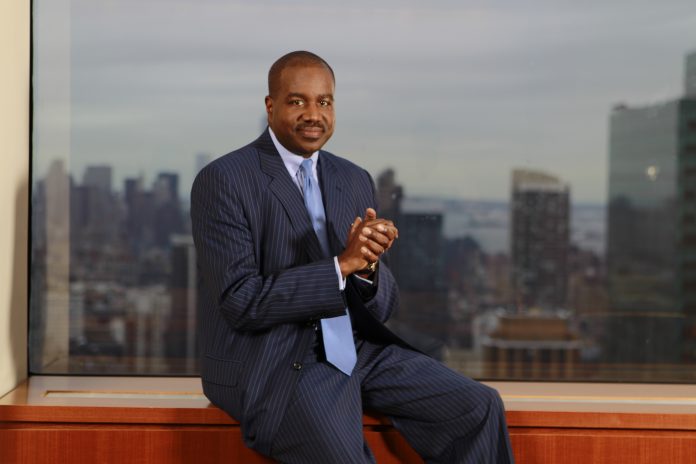Orlando Ashford, president of the Talent business segment at Mercer, the multibillion-dollar global human resource consulting subsidiary of Marsh & McLennan Companies, contends that Africa could be the next talent hub, with competitive talent pools that entice global corporations. In an exclusive interview at his New York City offices this summer, Ashford discussed Africa in the context of what Mercer described in a recent report as “an accelerating talent crisis,” one in which World Economic Forum founder and executive chairman Klaus Schwab sees “talentism” as “the new capitalism.”
With close to 70 percent of its population below the age of 25, Africa not only is the youngest continent in the world, but its labor force also will be larger than China’s by 2035, he said. The challenge for governments on the continent is to leverage the competitive advantage of having a younger workforce, he argued.
If Africa can prepare and equip its youth for the future by focusing on four key areas that speed the creation of sustainable, productive and competitive talent pools, it may be the next location where employers seek talent. Those four areas, which Mercer researchers refer to as “accelerators,” are education and training; health and wellness; access to experiences that enhance ability, productivity and human satisfaction; and enablers — an underlying infrastructure to ensure that educated, healthy and experienced talent is productively employed to create value for companies and for society.
As an example of the need to invest in education and training, Ashford pointed out that Africa has the largest agricultural potential in the world, yet less than 2 percent of African students are studying agriculture.
“Africa is the last major continent that needs its burst and it’s happening. China has gone through its burst, India has gone through its burst...now, all eyes are turning to Africa and you’re starting to see a lot of energy in that space,” he said.
But for many corporations, Africa of today is an uncertain terrain and some have turned to Mercer for help navigating it. This past summer, the firm responded to requests to host a meeting for companies that are trying to figure out how to move into or expanding their presence in Africa.
“We brought 12 companies together to talk about how they’re going to do that and to learn from one another around thechallenges of doing business in Africa,” Ashford said. “We had people from the U.S. Commerce Department who were basically saying ‘Africa is open for business and we want to encourage you to invest.’ That’s great! But how do corporations get there? How do they go there in a way that allows them to be relevant, allows them to be successful—so they don’t show up, put a flag on a stand, and say ‘I’m here.’”
Answering his own questions, Ashford said, “They should make sure they are culturally relevant, make sure they’re tuned in to the people that need the opportunities and vice versa, so they can create a series of successful relationships. It’s a powerful conversation.”
The meeting went so well that Mercer was asked to host another one. The next meeting is scheduled to take place before the close of this year.
“I think this is something that will become routine. These are major Fortune 50-type corporations for the most part that asked us to do this. And we have another ten, fifteen companies that want to participate,” Ashford said. “Organizations are trying to figure out how to move into Africa. There is talent and capability that exist, but they don’t have the traditional infrastructure to be able to go in and understand where it is and pull it out.”
Young Americans should be mindful of this growing interest in Africa and other emerging markets and equip themselves with skills so that they, too, would have access to talent opportunities in those markets, Ashford said.
“Cultural dexterity, language, the global mindset, and intellectual curiosity are all things that are important. As an American I think those are things we have to challenge ourselves more on because historically, things have always come here or gone through here. So as long as you’re smart and positioned the right way, the right opportunities will come here. That will still hold true, but not as much. There are things that will flow here, but they will flow through Africa and all the other emerging markets, many of which have already emerged,” Ashford said.













